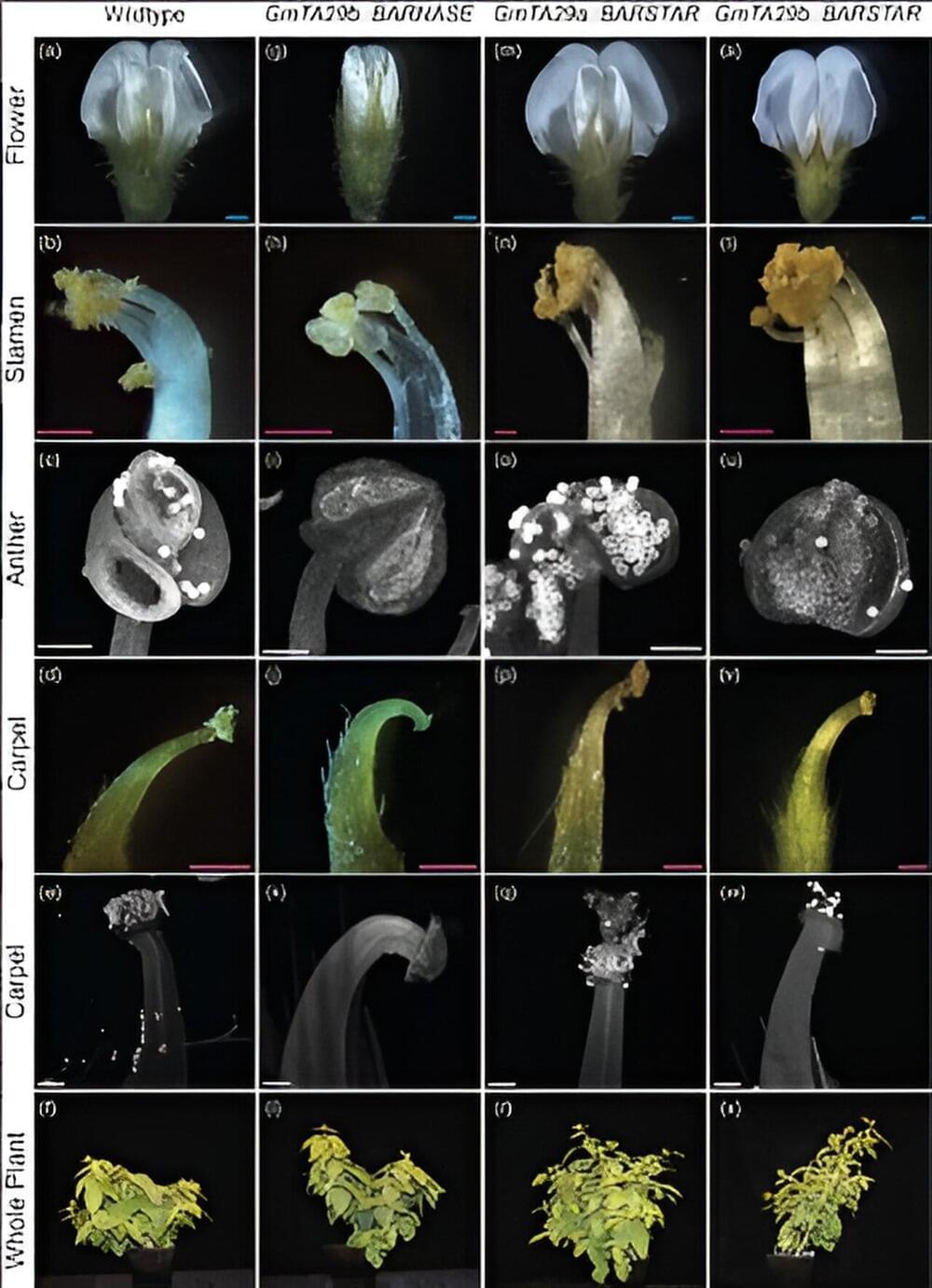Soybean (Glycine max) is one of the most economically and societally impactful crops in the world, providing a significant percentage of all protein for animal consumption on a global scale, and playing key roles in oil production, manufacturing, and biofuel applications. In 2022, an estimated 4.3 billion bushels of soybeans were produced in the United States, a decrease of almost 200 million bushels compared to the previous year.
To keep up with the growing demand for soy-based animal feed, the USDA projects soybean acreage will increase by 19.6% by 2032. Hybrid breeding in soybean has the potential to increase the productivity of one of the most planted and consumed crops in the Americas, yet it has remained largely unexplored.
New research by scientists at the Donald Danforth Plant Science Center and Cornell University provides a key enabling technology to produce obligate outcrossing in soybean. The newly published study, “Introduction of barnase/barstar in soybean produces a rescuable male sterility system for hybrid breeding” in the Plant Biotechnology Journal, has revealed that obligate outcrossing with the Barnase/Barstar lines provides a new resource that can be used to amplify hybrid seed sets, enabling large-scale trials for heterosis in this major crop.
